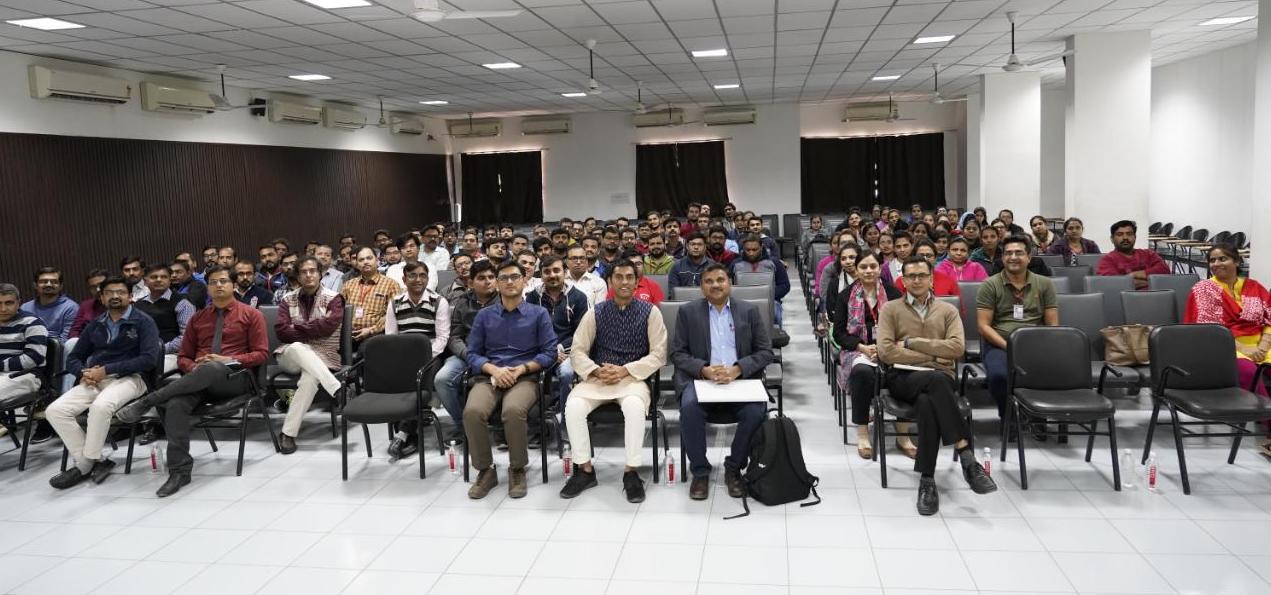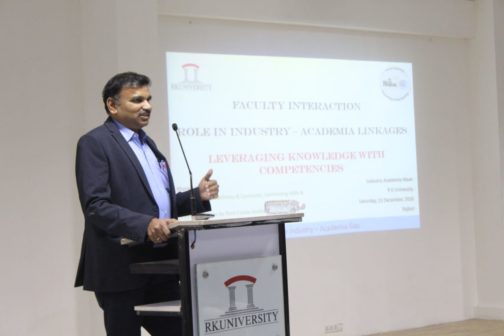Meaningful and mutually beneficial industry – academia collaboration* holds the key to integrating education with economic development. Though this has been a topic of discussion in many forums and event, it leaves a lot to be desired in terms of implementation. My background in manufacturing and my industry experience being an entrepreneur has taught me many lessons about why we need to initiate and build strong industry-institution interface that lay the foundation of job creation, talent management, research and development.
Let’s acknowledge the fact that both the entities have to accept the fact that they are part of the value chain that contributes to economic activity through creation of products and services. While the supply side is represented by the academia, the demand is created by the industry. Hence, it would be relevant to explore some concepts of how the process can be make more efficient through continuous improvement, tangible outcomes and entrepreneurial spirit.
Kaizen and Six Sigma for industry- academia collaboration

Over the years, manufacturing industry has been applying many principles of Kaizen and Six Sigma to improve productivity, reduce wastage through iterative process improvement. Let’s first take up the concept of outcome. How many of us define our work and deliverable as outcomes that can be measured and improved? The moment we think of our activities and tasks as outcomes we bring an element of accountability and responsibility that makes us the owners. And when we own something we have a natural tendency to think positive with a sense of pride and we will try out best to improve it – whether it is a teacher in the classroom or a person on the shop floor – to me both are engaged in a process that is creating value. Of course, this value could demonstrate as two different outcomes, one is about facilitating learning and the other is about creating a product.
 Whether we are a part of the industry or academia, our goal should be continuous improvement of the outcomes. In other words, we need to ask the right questions to get to the root cause of the problem. Often, we stop after asking the first question with ‘why’ as in, why has something gone wrong or why has it happened this way? If you ask repeatedly ask why for 5 times, applying the concept from Kaizen, you will identify the root cause and find the reasons that have cue to the answers. Now the challenge is to solve a certain problem by using the right answers.
Whether we are a part of the industry or academia, our goal should be continuous improvement of the outcomes. In other words, we need to ask the right questions to get to the root cause of the problem. Often, we stop after asking the first question with ‘why’ as in, why has something gone wrong or why has it happened this way? If you ask repeatedly ask why for 5 times, applying the concept from Kaizen, you will identify the root cause and find the reasons that have cue to the answers. Now the challenge is to solve a certain problem by using the right answers.
In practical terms, the right way to address the problems is by going to the ‘Gemba’ or the shop floor in the factory or any site. Even the classroom becomes a site for knowledge creation and exchange. By spending time on the floor or the site, you get to understand and learn in depth about why a problem has occurred, how it can actually solved, what is creating wastage how things can be improved and so on. Data from these sources help us in estimating the impact and addressing the issues involved.
Above all, there is a need to inculcate entrepreneurial spirit in both the employees in an industry and the faculty members of an academic institution. Being an entrepreneur is not just about doing any business; it is more to do with a life style. While an entrepreneur works 365 days for 24 hours to create a certain value for the customers, for employees, normally a job ends after the mandatory office hours. In today’s scenario, with cutthroat competition, one can survive and thrive only with deeper engagement with the job and a commitment that delights the employer. This, in combination with genuine customer-service orientation will transform the way we look at work and workplace.
It’s only when we demonstrate these values in action, we can expect the same from students and them employees. Hence, it is important to walk the talk and look beyond our comfort zones to make a difference by bringing and industry and the academic a bit closer.
*This article is based on my recent interaction during an invited talk at Rajkot University, Gujarat.
Guest author: Manish Kothari, Managing Director, Rhino Machines Pvt Ltd : Director, ACE Foundation Email : manish@rhinomachine.com




